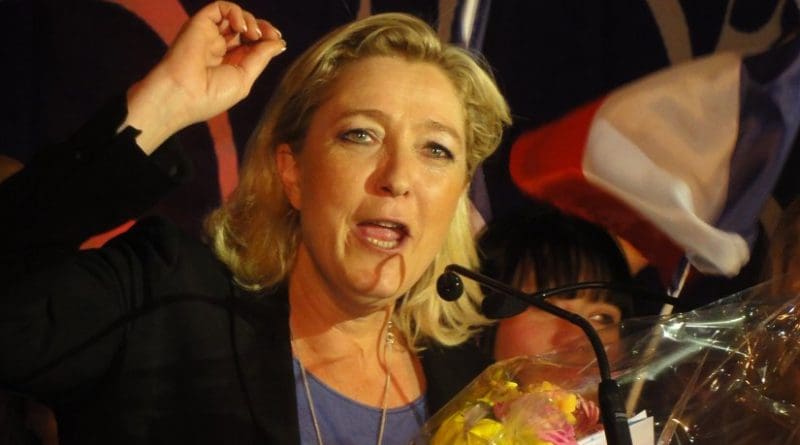MEPs To Block Le Pen’s Party From Taking Parliament Jobs
By Cécile Barbière
(EurActiv) — Marine Le Pen’s Rassemblement National and its allies are facing protest from the European Parliament’s other political groups, who are refusing to involve the French far-right party in a process that will decide on the Parliament’s key positions.
Le Pen’s party and its allies gained a sizeable number of seats in the European Parliament, they are being kept away from taking key positions in the Parliament because MEPs are adopting the “cordon sanitaire” rule.
This practice, which was first used in Belgium in the 1990s, aims to exclude far-right political parties. In the European Parliament, it was has used in various forms for over a decade to ensure anti-European and populist parties cannot acquire key positions.
This time, however, it was not sure whether the ‘cordon sanitaire’ would be applied as some MEPs believe it to be difficult to justify from a democratic perspective.
“I am divided on this ‘cordon sanitaire’ issue,” admitted a French MEP.
“However, when I saw the attitude of Rassemblement National MEPs during the opening session… it was a sad spectacle. These people do not want to play by the institution’s rules,” he added.
At the opening ceremony of the new European Parliament on Tuesday (2 July), the 22 Rassemblement National MEPs remained seated during the European anthem, while the British Brexit party deputies turned their backs.
This attitude has helped convince some of those who are sceptical of the ‘cordon sanitaire’ practice.
D’Hondt Rule
With 73 MEPs, the Identity and Democracy (ID) group, to which the French of the Rassemblement national and the Italians of the Lega belong, is the Parliament’s fifth strongest political group.
The populist group is only slightly smaller than the Greens, who have 74 MEPs.
According to the d’Hondt rule, such figures would give their group’s MEPs access to a certain number of posts. This rule ensures the distribution of key positions among the different political families according to a complex calculation that aims to ensure everyone is represented.
“The d’Hondt rule has given rise to certain monstrosities, particularly with regard to the chairmanship of the Agriculture Committee and the Legal Affairs Committee,” says Sylvie Guillaume, the leader of the French MEPs of the Socialist and Democratic (S&D).
By strictly adhering to this rule, the EU Parliament should have placed an MEP from the Rassemblement National at the head of one of these two committees.
The head of the Legal Affairs Committee is responsible for deciding whether or not to lift parliamentary immunity
In the previous European Parliament, MEPs from Rassemblement National were challenged by the committee for employing ‘bogus’ parliamentary assistants in order to boost party funds.
The Agriculture Committee, for its part, works on the reform and application of the Common Agricultural Policy (CAP), one of the EU’s most important policies. The CAP accounts for almost a third of the Community’s budget, of which France is the main beneficiary.
Rassemblement National is calling for the abandonment of the CAP and the renationalisation of agricultural subsidies.
The four main groups in the European Parliament are now all in agreement to keep the ‘cordon sanitaire’ around the ID group, which is now unlikely to obtain any committee chairmanships.
When the Vice-Presidents of the European Parliament were elected on Wednesday (3 July), the populists and eurosceptics of the European Conservatives and Reformists Group (ECR) were kept away from the 12 available posts, which were divided between the pro-European groups.
This appears to be a first failure for the ID group, which had claimed a vice-presidency of the European Parliament when it had set up its group in June.

